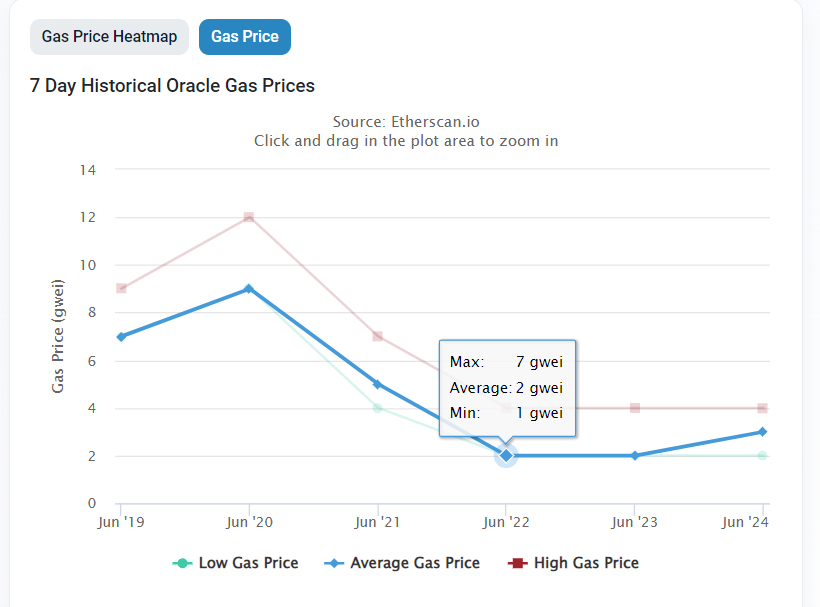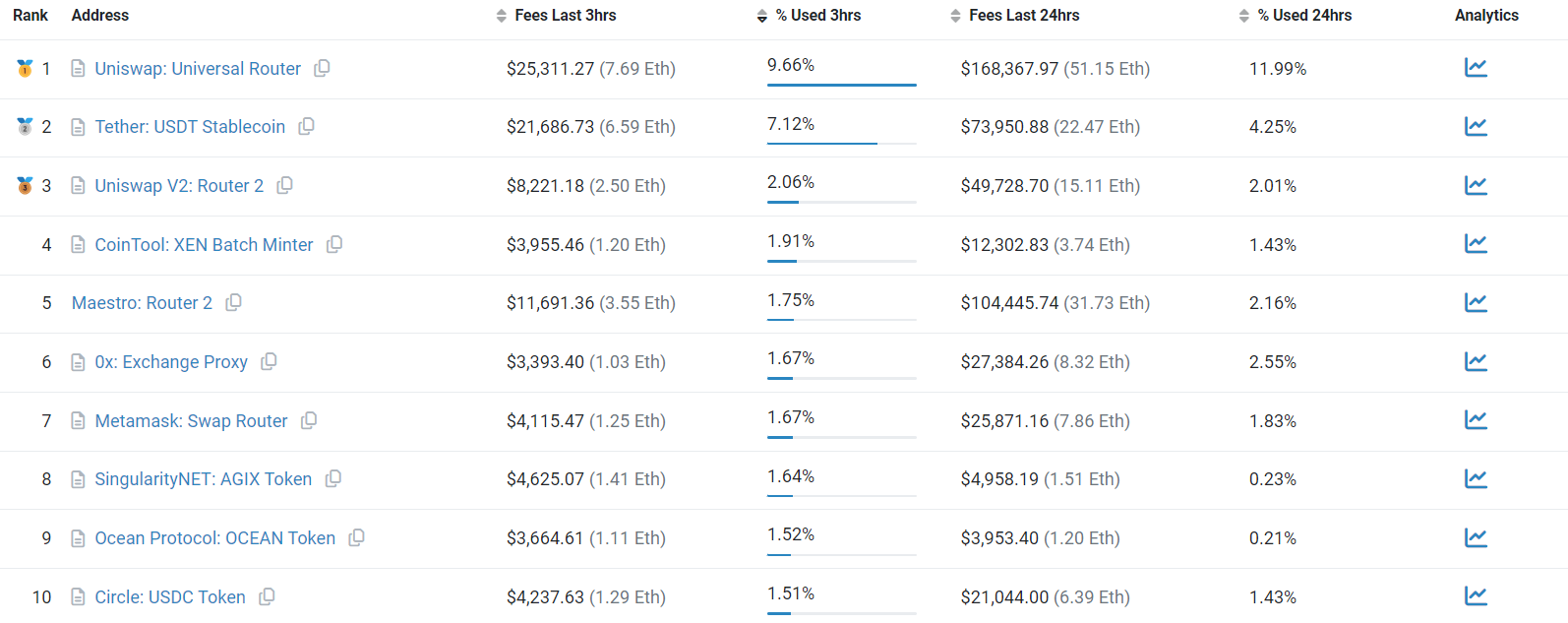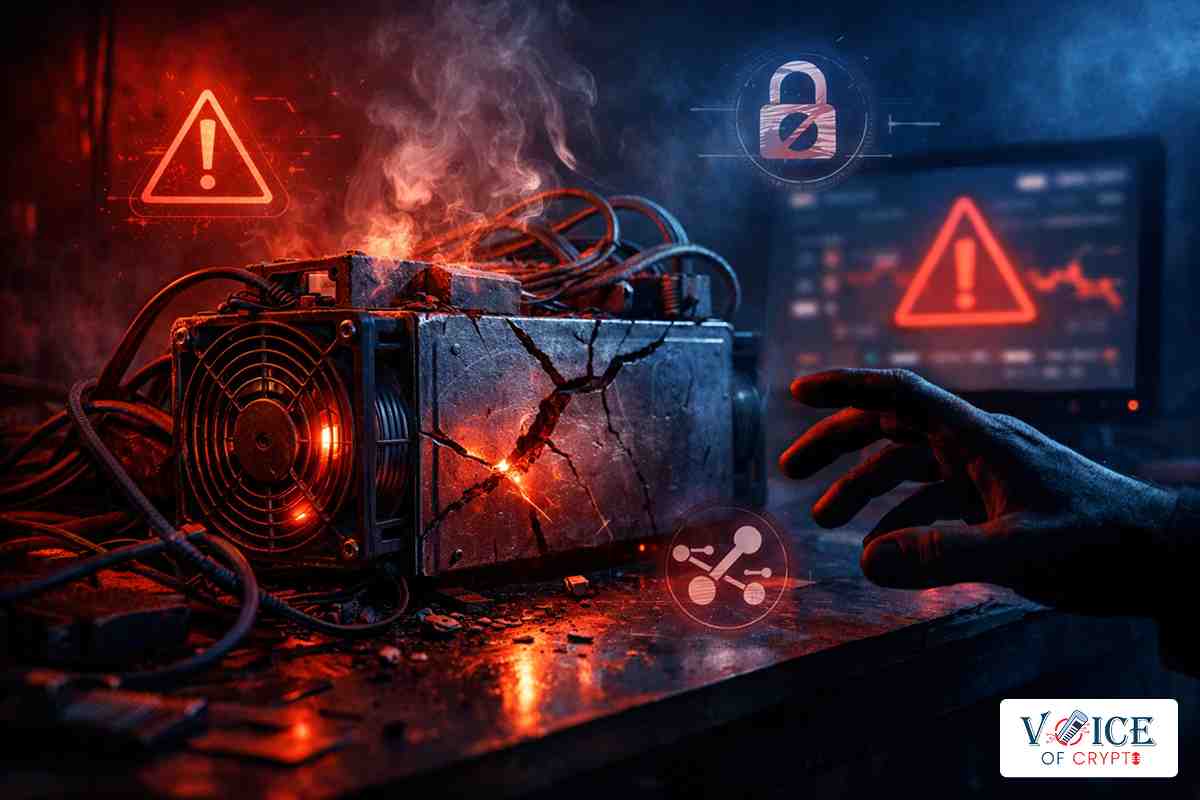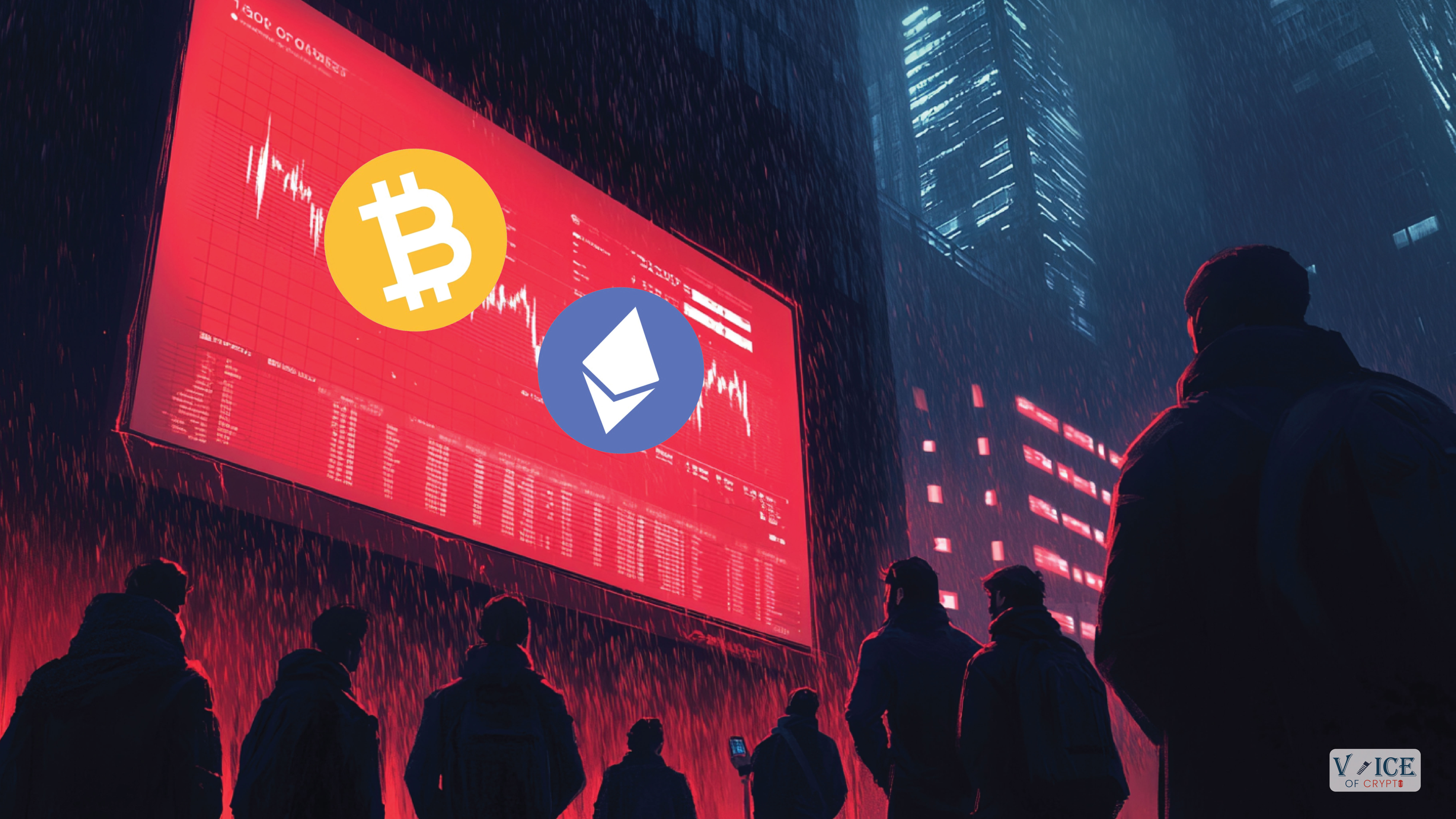Key Insights:
- Ethereum transaction fees have fallen by more than 99% since March 2024.
- The Dencun Upgrade played a critical role in making Ethereum transactions cheaper.
- Gas prices reached a record low of 1 Gwei on 24 June 2024 but recovered to 6 Gwei soon.
While Ethereum transaction fees haven’t reached “virtually free” territory, gas prices decreased noticeably on June 22nd, 23rd, and 24th, 2024. Reports indicate a drop to 1 Gwei in the early morning hours, around 6 am UTC on those dates, which would lower the cost of average and slow transactions.

Average Gas Fee Crashes to 1 Gwei on 22, 23 and 24 June
The ultra-low prices can be attributed to a feature called blobs on the Ethereum blockchain, which was introduced with the Dencun Upgrade on March 13, 2024. The feature allows Ethereum to roll up transactions into batches similar to zero knowledge rollups on layer-2 chains.
Since March 2024, Ethereum gas prices have been declining, reaching the record-low levels we see now.
Before the upgrade, Ethereum gas prices were typically above 150 Gwei, costing up to $50 and, in rare cases, above $100 for single transactions. However, as of 24 June, it costs less than a dollar ($0.22 at 6 am UTC on 24 June) to transact on the Ethereum blockchain.
Low fees are expected to increase the blockchain’s adoption rate and contribute to its rallying price.
Explaining High, Average, and Low Gas Prices
Ethereum transaction fees are not simply a single cost. They determine the priority level of your transaction, affecting how quickly it’s processed on the blockchain. While speeds can vary, fees are generally categorized as High, Average, or Low. As expected, transactions with higher fees are processed faster.

Ethereum Gas Price Spectrum
High-speed transactions typically take 15 seconds to 30 seconds, medium-speed transactions take 30 seconds to 1 minute, and low-speed transactions, depending on network congestion, take 5 minutes to a few hours.
Gas Price Trends in 2024
Before the early 2024 crypto market rally, Ethereum gas prices remained relatively low due to decreased network traffic. Many users opted for Layer-2 solutions like Polygon and Arbitrum for less critical transactions.
However, as the market heated up, on-chain activity surged, leading to a rise in gas prices. This culminated in an eight-month high during the second week of February 2024.

Ethereum Gas Fee Peak in Feb 2024
Dencun Upgrade: Addressing Ethereum Gas Fees
While not eliminating high gas prices altogether, the Dencun Upgrade, finalized in early March 2024 and implemented on March 13th, introduced a potential solution. The key feature is a storage space called “blobs.”
These blobs utilize previously unused space within blocks to store rollup transactions.
Only a summarized version of these transactions is submitted for verification on the mainnet, reducing the data load and potentially lowering gas fees for users interacting with Layer-2 solutions.
Due to the Merkle Tree algorithm used in the design of the Ethereum blockchain, a single misplaced or erroneous transaction would compromise the entire block.
Hence, if a single transaction is bad in a block, the entire block would appear bad. This feature also meant that if the summary of the block of transactions is genuine, then all the transactions in the block would also be genuine.
Rollups leverage a similar approach to achieve cost savings. They bundle multiple transactions together and validate them as a single unit. This significantly reduces gas fees, the cost associated with processing transactions, by dividing it among all the bundled transactions. The result is faster processing and lower gas requirements for everyone.
Previously, a feature called “Blob” served a similar purpose, primarily for smart contracts that consumed a lot of gas. While this mainly benefited those specific contracts, it also helped by freeing up space on the blockchain. Now, with most gas-intensive contracts utilizing blobs, the freed-up space is available for individual users to conduct transactions.

Top 10 Gas Guzzlers on Ethereum Blockchain as on 24 June 2024
These reduced the network congestion significantly, reducing gas wars and leading to low gas prices.
How Will Validators Earn if Gas Fee Crashes?
Ethereum uses a mixture of ETH obtained from Gas Fees and that obtained from fresh minting to pay validators. This helps Ethereum keep validators up and running even if the blockchain receives few transactions.
Further, even though gas prices have crashed 99% of their February numbers, they are expected to stabilize soon.
We saw that after a few hours of reaching the low of 1 Gwei, Ethereum gas prices had recovered to 6 Gwei when writing.
Disclaimer: This article is intended solely for informational purposes and should not be construed as financial advice. Investing in cryptocurrencies involves substantial risk, including the possible loss of your capital. Readers are encouraged to perform their own research and seek guidance from a licensed financial advisor before making any investment decisions. Voice of Crypto does not endorse or promote any specific cryptocurrency, investment product, or trading strategy mentioned in this article.









